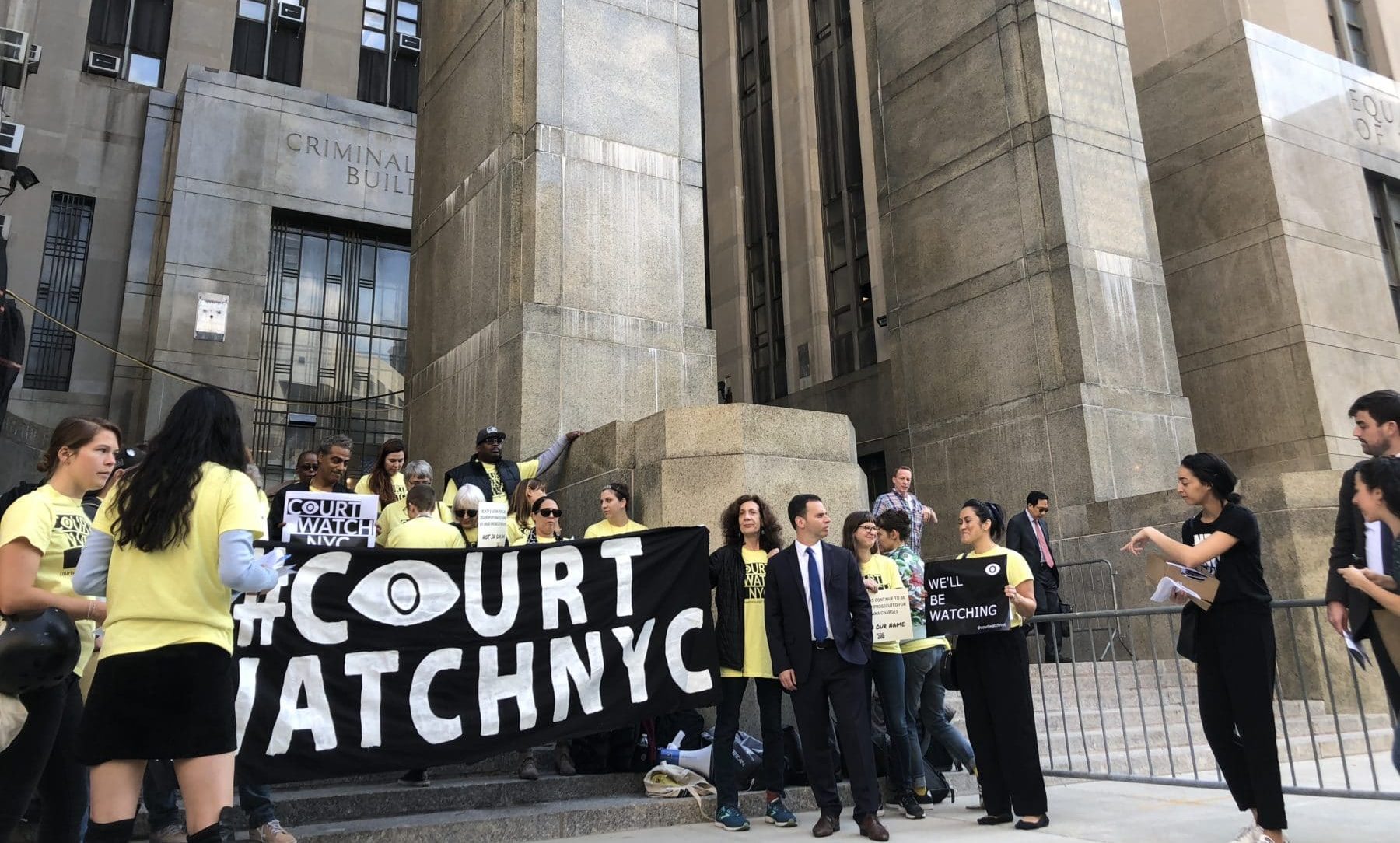As of January 1, cash bail is no longer legally applicable to the vast majority of people charged with misdemeanors in New York State. Reforms passed by the state legislature in April 2019 have been heralded as historic and a step towards ending the use of pre-trial detention in more than 100,000 annual New York City cases.
Yet at least one activist group is wary of how the changes will—or will not—be implemented. But they have a plan to hold prosecutors accountable.
Court Watch NYC is a group of volunteers who observe arraignments, recording and reporting back what they see, and launching actions to hold courts accountable. In the past, their work has revealed that the Manhattan and Brooklyn district attorneys were continuing to prosecute marijuana misdemeanor charges by exploiting loopholes in their own seemingly-progressive policies, as Filter reported.
On December 20, the group announced its new report, titled “Eyes on 2020,” outlining the need to be—and its own plan to be—vigilant in making prosecutors abide by the new reforms. This holds even though one of the city’s prosecutors—Brooklyn’s District Attorney Eric Gonzalez—signed onto a 2019 letter in support of the law. Court Watch’s previous work has already illustrated for them the imperative behind this; in the past, they’ve heard “prosecutors blatantly state on the record their aim to keep the status quo and deny people pretrial freedom,” states the report.
Prosecutors in the city have an already-suspect relationship to bail, which for Court Watch suggests that DAs may drag their heels on making changes. In the last few months of 2019, the group recorded “a number of cases where prosecutors are requesting bail on individuals whose freedom will be guaranteed in January,” according to the report.
For example, a Manhattan prosecutor requested $2,000 in cash bail for a man who was charged with shoplifting food, which Court Watch noted to be for his family—a case that is no longer eligible for cash bail.
The group outlined a number of key questions for their volunteer watchers to consider in observed arraignments moving forward. Here are five of them:
Are people being charged with more serious crimes for actions that in the past would have been equated to a lower charge? Are prosecutors skirting the mandatory release provisions by charging bail jumping or attempted burglary in the second degree to attempt to jail more people pretrial?
Which non-monetary conditions are prosecutors requesting and judges setting?
For non-bail eligible/non-qualifying offenses, are prosecutors requesting and are judges releasing people on their own recognizance or imposing onerous conditions (such as curfews, drug testing, phone or in-person check-ins, or electronic monitoring)?
Are people who used to have bail set going to be remanded? How often are people being remanded?
How will they justify imposing bail on someone who is homeless or on a fixed income?
Photograph of Court Watch NYC activists in November 2018 at a rally; by Filter.





Show Comments